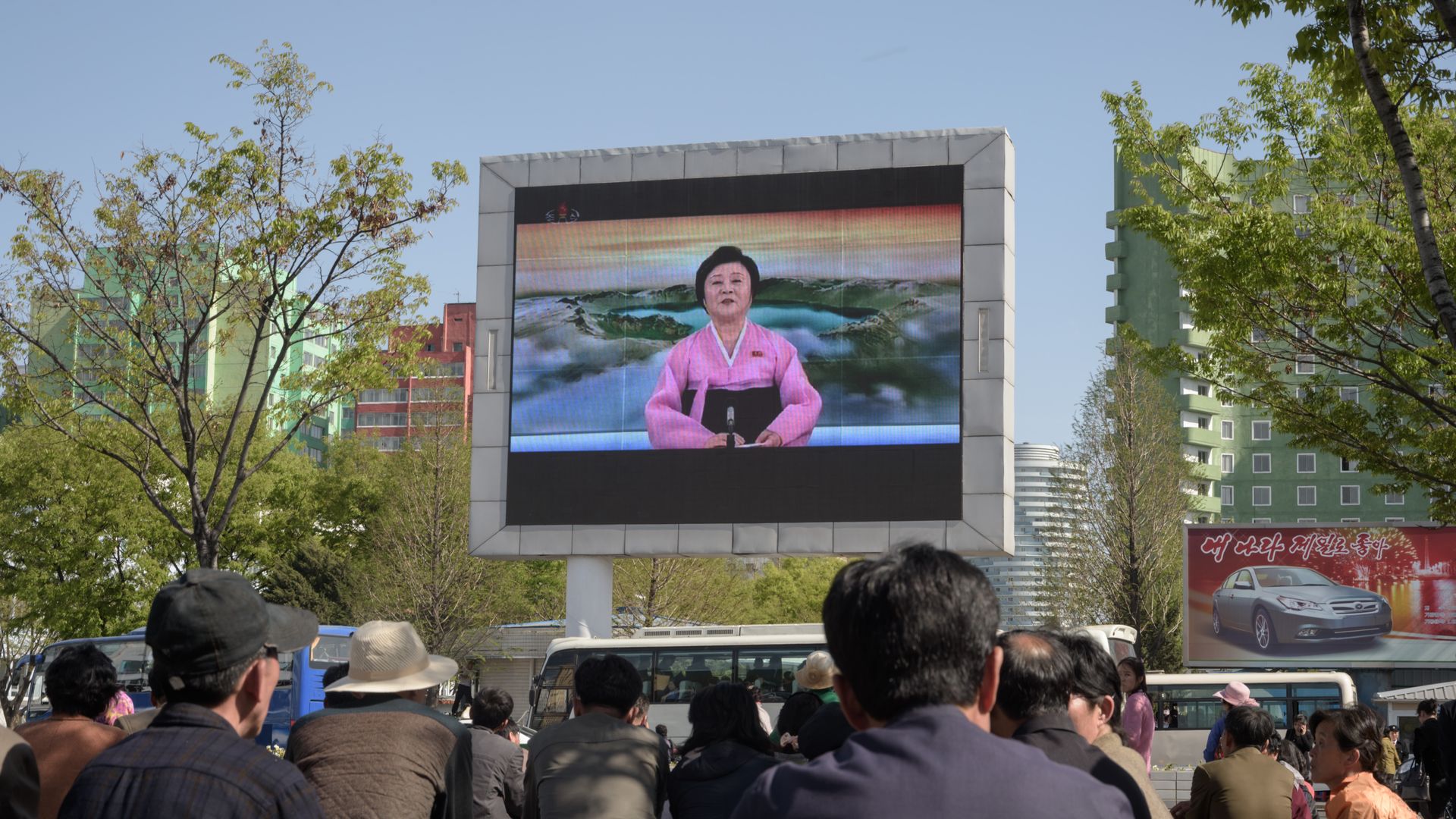Updated Apr 23, 2018 - World
Expert VoicesKim Jong-un's nuclear announcements sound big but change little
Add Axios as your preferred source to
see more of our stories on Google.

Kim Jong-un's nuclear announcement televised in Pyongyang on April 21, 2018. Photo: Kim Won Jin/AFP via Getty Images
